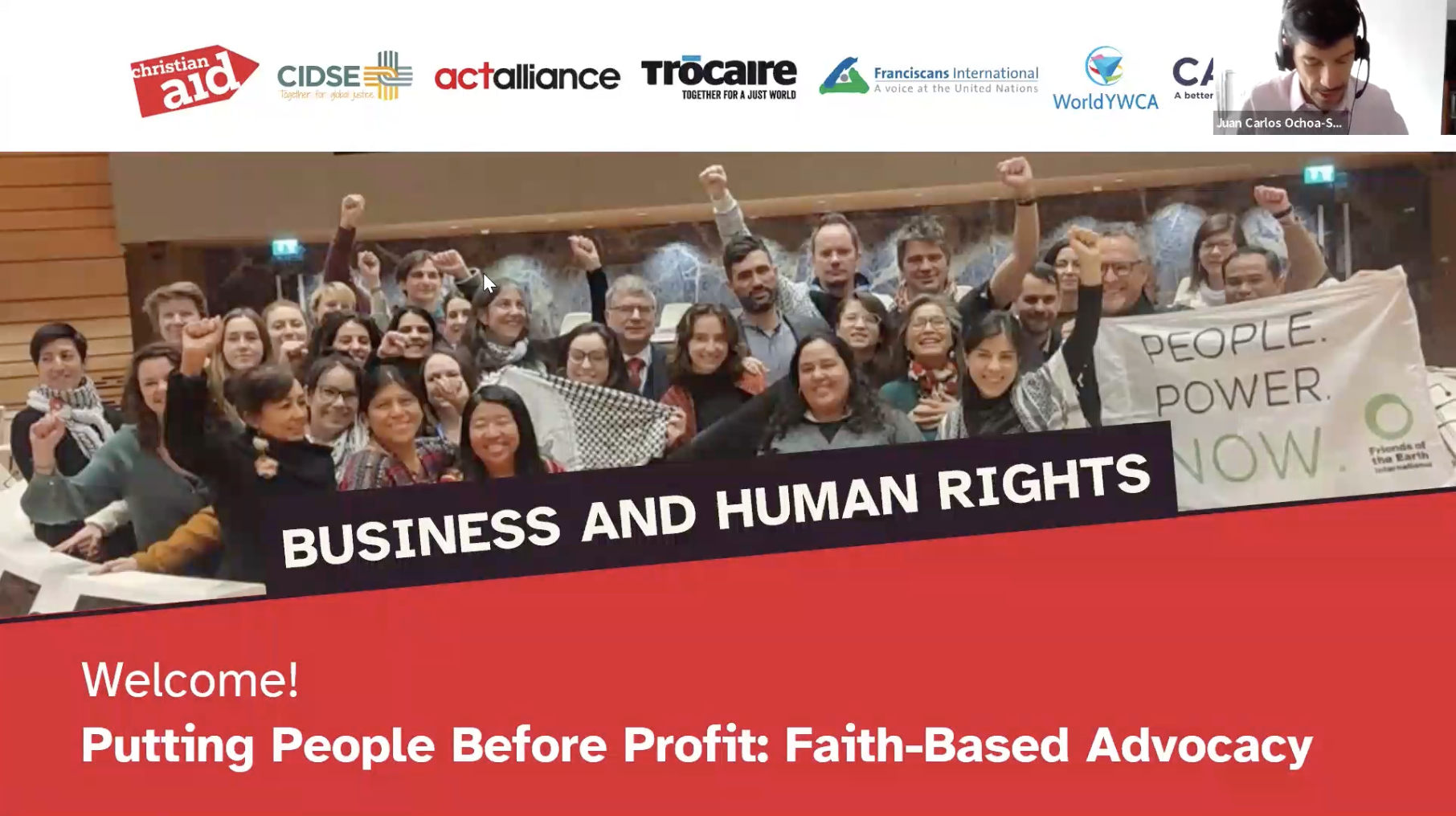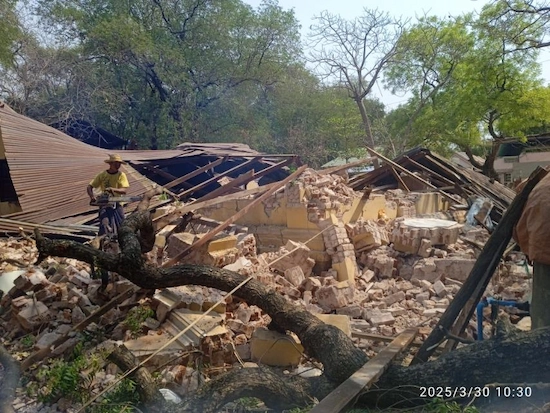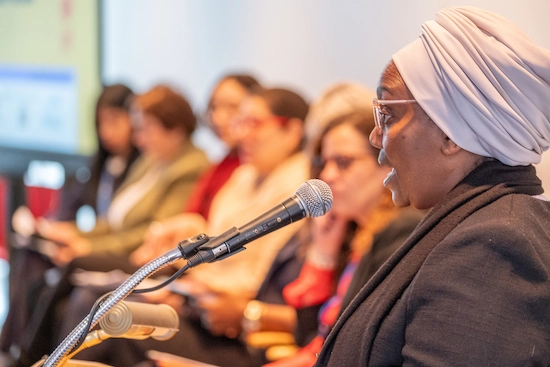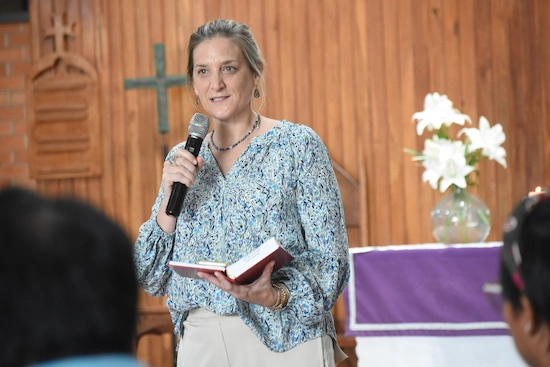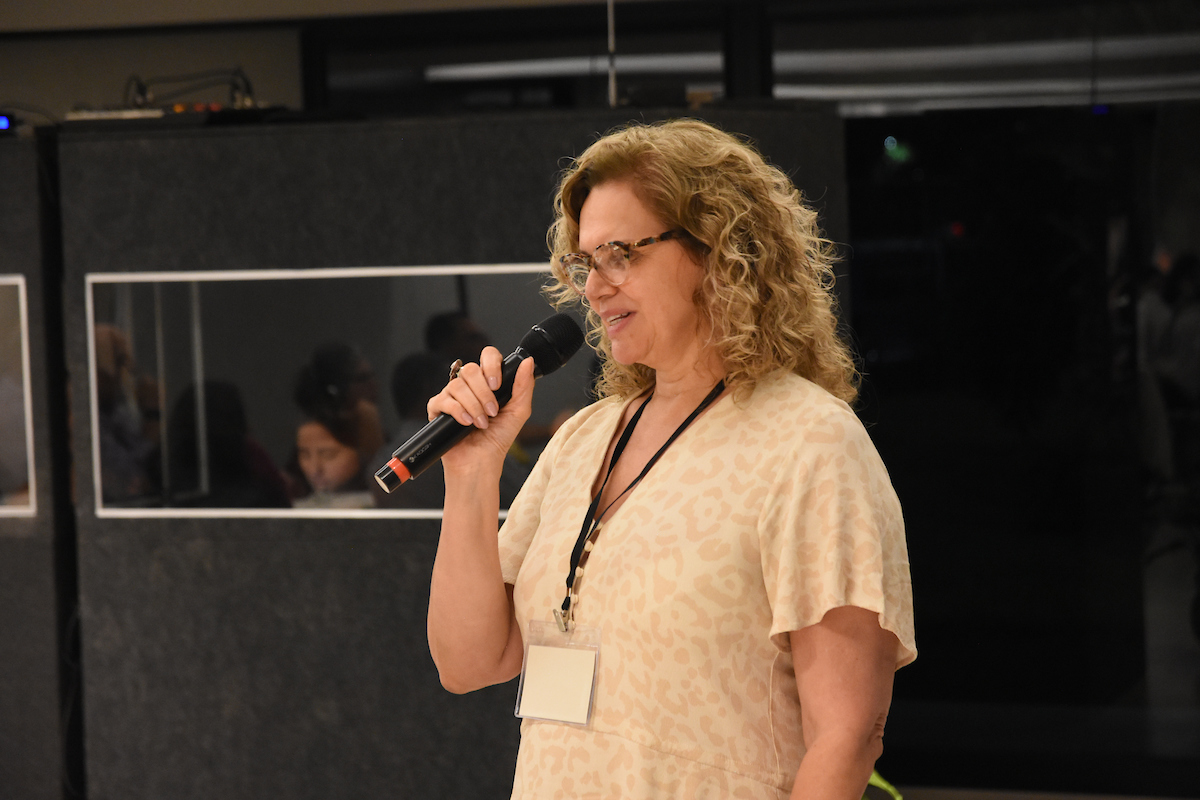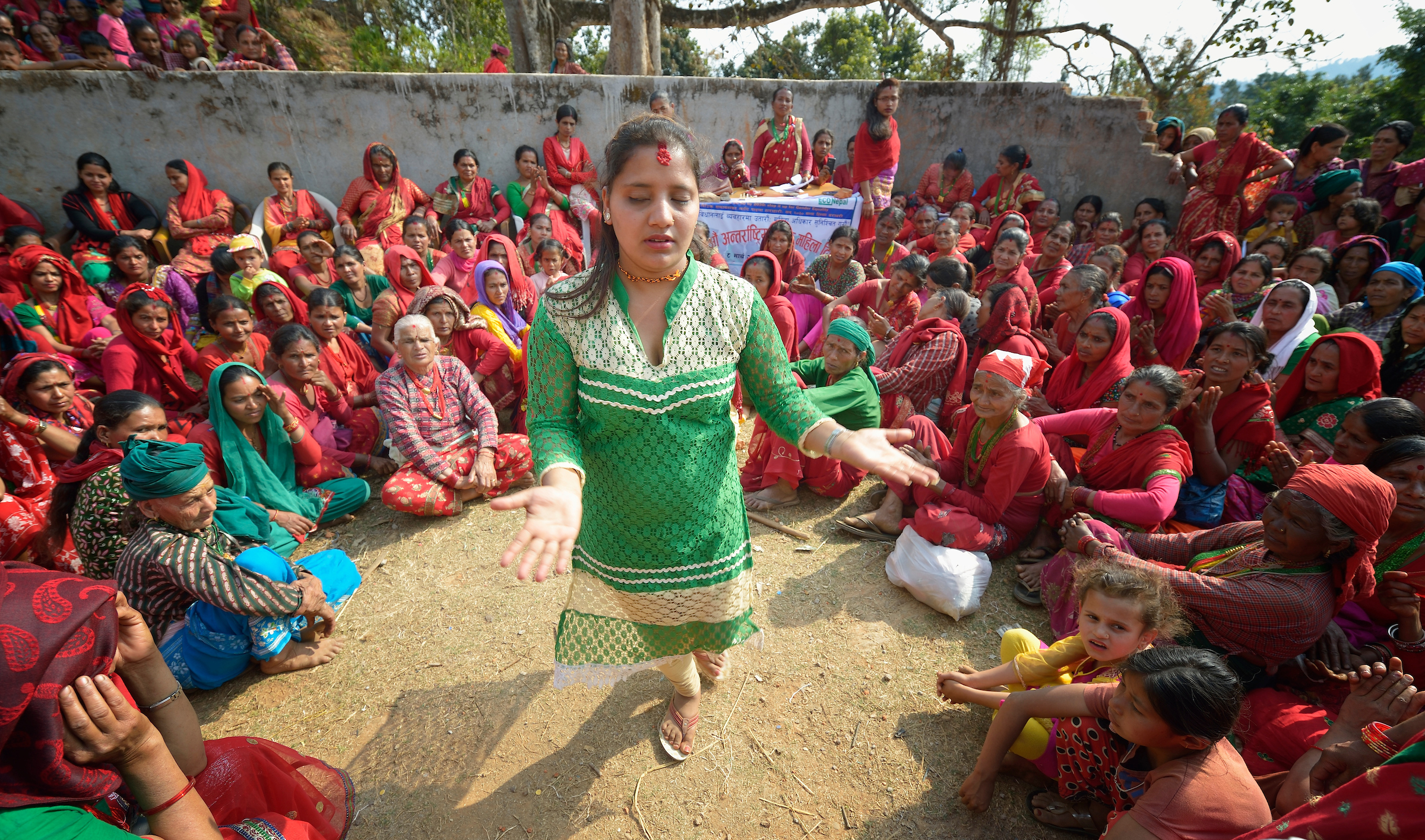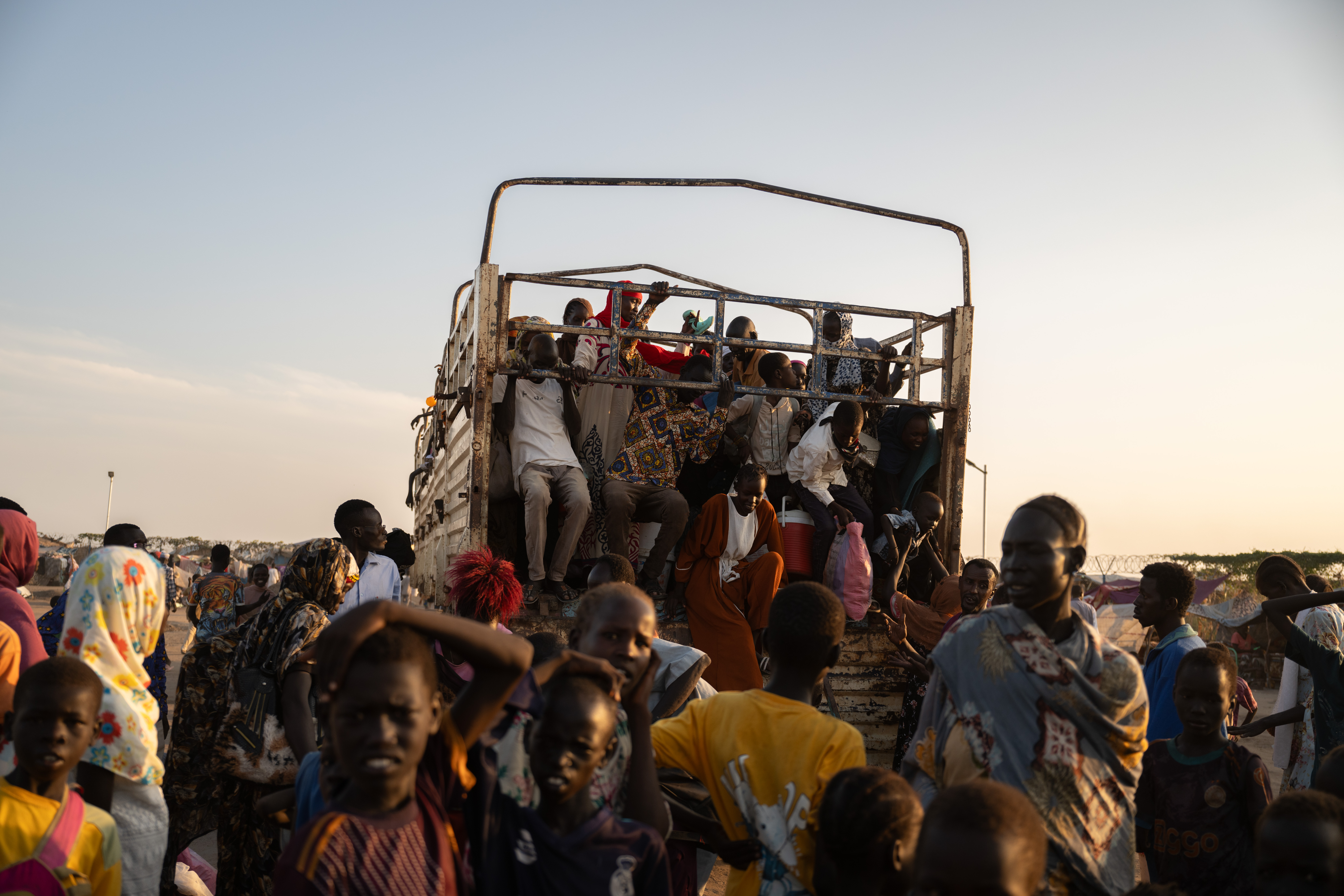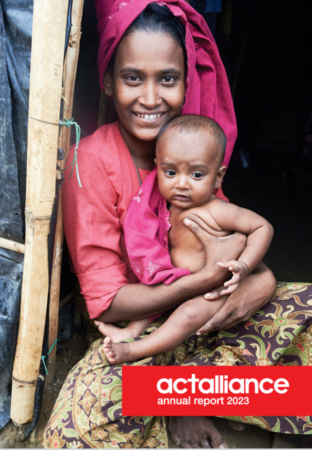“For ACT Alliance, 2023 was marked by significant achievements, partnerships, and collaborative efforts that underscored our commitment to building a more sustainable and just future for all,” says ACT General Secretary Rudelmar Bueno de Faria. “Faced with increasing social and political polarization and shifting narratives, ACT’s commitment to human rights, inclusion and justice remained unwavering.”
The 2023 issue of the ACT Alliance Annual Report features a spotlight on West Africa, highlighting an innovative Gender Justice and member collaboration called Transforming Masculinity. There are also updates on ACT’s Climate Justice, Migration and Displacement, and Emergency Preparedness and Humanitarian Response programmes, as well as news on the work of Forums, the audited reports and the growing list of ACT members around the world.
We hope you enjoy this celebration of the work of the alliance.
The 2023 Annual Report can be downloaded in English, French or Spanish at the links below.
